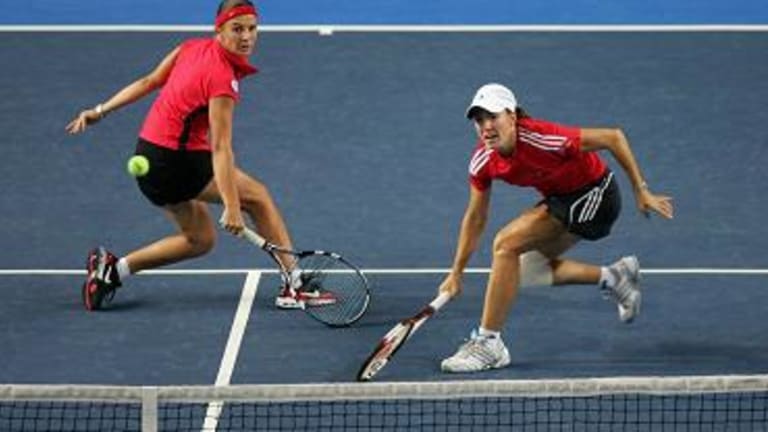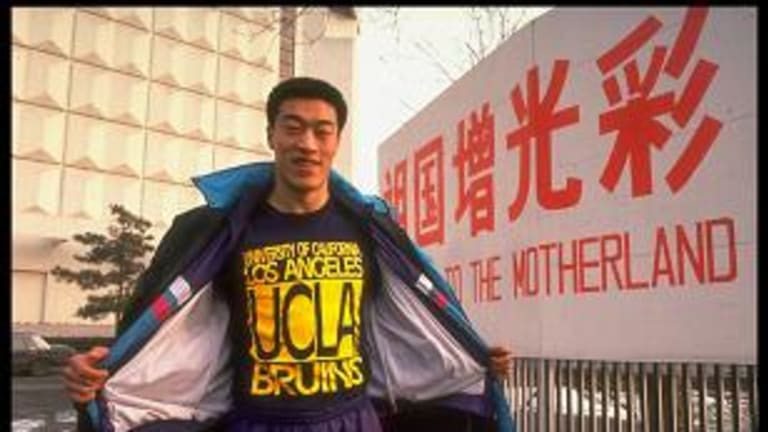When I first wrote about the inter-related subjects of injury and the calendar, the strong response and long discussion I triggered made me think that i had just pushed the wrong (actually, the right) button at the right time. Now I see that almost any post on the issue throws sparks the moment it touches the grindstone of the Tribe's collective mind. Toss in the third critical ingredient - player responsibility, or lack thereof - and the mix becomes extremely unstable and in no time - Ssshhhhpow! Fireball!
I think Hank has it right (see his string in the Comments section of Temporary Indoor Superstar, below) when he says that the arguments and discussion inevitably becomes circular: The chicken-or-egg question in this area roughly boils down to a debate over which came first, and/or which is most responsible, for the downward spiral of player commitment to tournaments: spoiled superstars, absurd scheduling, or the increasing rate of injury - a jump that may have something to do with the fact that injury remains the only legitimate, ATP-sanctioned excuse for pulling out of an event to which a player has committed.
I suppose I take the increasing frequency with which players blow off events to which they've made a formal commitment (or which they're nominally required to play, like Masters Series events) more seriously than most. And did you notice that the last refuge for hamstrung tournament directors dying to save some semblance of face when faced with sudden withdrawals is to declare: Oh, sure, Mr. Superstar blew us off, but he's a class guy, he came all the way out here to do an official press conference and he even attended the sponsor cocktail party! What a guy, huh? The amount of rationalization, backpedaling, and excuse-making that TD's, the players themselves, and even their Kool-Aid drinking fans practice never fails to astonish me. And I'm amazed by the degree to which the standard-issue, blithe rationalization is accepted as legitimate: Sorry, I have to do what's best for my game.
Okay, now put yourself into the place of, oh, an honest tournament director (I know it sounds oxymoronic). Better yet, put yourself in your own place. Imagine that you have entered into a contract with someone - software provider, home seller, movie producer. Then, just as you're all juiced up and ready to go -that is, execute the terms of the contract - the guy or woman tells you, Gee, I had a couple of tough weeks on the job, so I'm tearing up my contract. Hey, I need to do what's best for my business, right?


